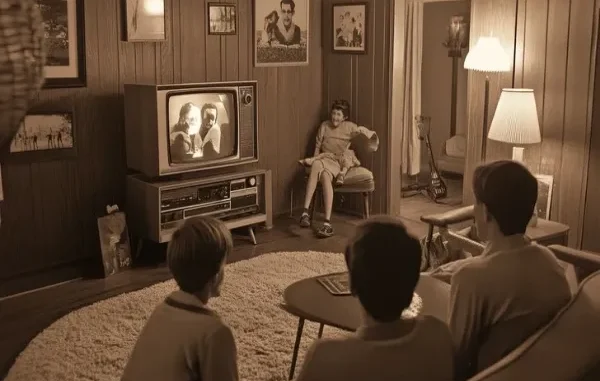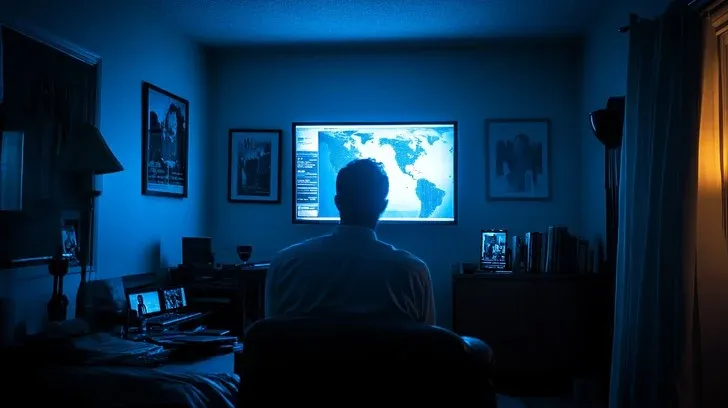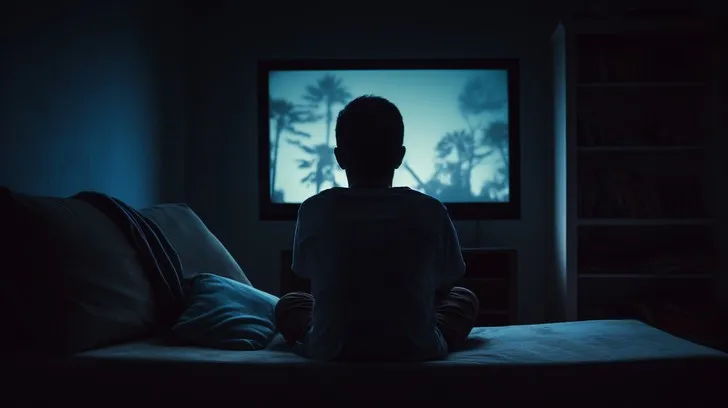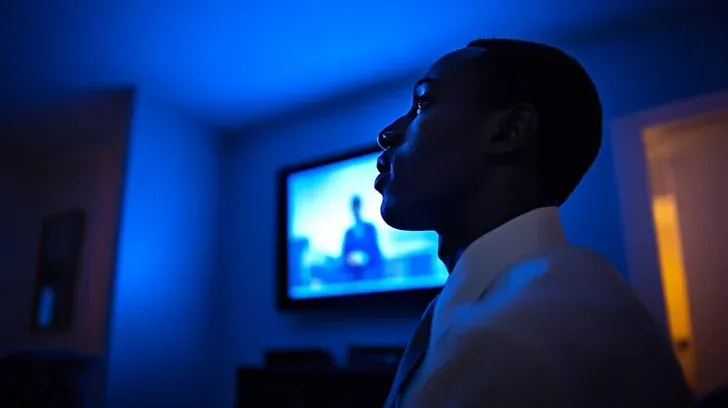
By Guest Contributor | Hura Watch Originals
One Viewer’s Unexpected Obsession with Sinners on Hura Watch
“It started as background noise. Then I missed dinner. Then sleep. I watched all night. Sinners is that kind of show.”
In an era oversaturated with content, few series manage to pierce through the digital fog the way Sinners has. Streaming now on Hura Watch, this gritty drama has quietly built a cult following—and it’s doing so far from mainstream platforms.
We sat down with 29-year-old Elena T., a freelance designer from Austin, Texas, who stumbled across Sinners on Hura Watch one evening. What followed was a binge session she still talks about like it was a fever dream.
How did you even find Hura Watch and this show?
Elena T.: Honestly? TikTok. Someone posted a five-second clip—no context. I got curious, Googled the title, and ended up on Hura Watch. I’d never heard of it before. Totally free, super fast, no nonsense. The site was clean and smooth, so I clicked “play.” That’s all it took.
What was your first impression of the show?

Elena: Gritty. Like really dark—but not in a forced way. It has this raw energy. Think True Detective meets Euphoria, but without trying too hard. The characters are messed up, the dialogue feels too real sometimes, and the plot? Twists you don’t see coming.
What is Sinners actually about?
Elena:
Sinners is a psychological drama with heavy religious overtones, but not in the traditional way. It’s not about faith—it’s about guilt, secrets, and the human cost of silence. The story follows a tight-knit community where every character is hiding something dark. Each episode peels back a layer, showing how judgment and morality can twist people. It’s haunting, slow-burning, and deeply human.
Who stars in Sinners? Any standout performances?
Elena:
Oh, definitely. The lead is played by Ava Kirsch—she’s phenomenal. Cold, sharp, but broken in a way you don’t fully understand until the end. Then there’s Jonah Ruiz, who plays the pastor’s son. He has this magnetic, unsettling energy. The cast overall isn’t full of A-listers, but that actually works in its favor. They feel real. Raw. You’re not watching celebrities—you’re watching people fall apart.
Why is Sinners interesting compared to other shows?
Elena:
It’s not flashy. It doesn’t spoon-feed you anything. You have to pay attention. The writing is tight, every scene means something, and the sound design alone tells a story. But what really hooked me is how it balances morality without taking sides. You don’t know who to root for. You just keep watching, needing to know how far it’ll all go.
What do you think viewers can learn from watching Sinners?
Elena:
That shame is powerful. That hiding the truth can destroy people more than the truth itself. There’s also this theme of inherited guilt—how trauma can pass through generations, even in families that look perfect on the outside. It definitely made me reflect on the stories we tell to protect ourselves, and how those stories can become prisons.
What time period is Sinners set in?

Elena:
It’s modern, but it feels timeless. Like, no one’s constantly on their phones, and there aren’t obvious tech cues. The setting is rural—kind of Southern Gothic but more Midwestern. The show’s atmosphere is soaked in nostalgia but never specifies a year. It creates this eerie sense of isolation. Like time is standing still.
The visuals are striking. What about the fashion in Sinners?
Elena:
It’s understated but very intentional. The characters wear muted tones, lots of earth colors—beige, grey, olive. There’s a vintage Americana vibe to some outfits, like denim jackets, wool coats, and old-fashioned dresses that feel hand-me-down. It reflects their internal world: restrained, weathered, hiding layers. Even the wardrobe tells a story.
What makes Sinners so bingeable?

Elena: Every episode ends with a cliffhanger. It’s like they weaponized curiosity. But it’s not just plot—it’s the psychology. You start wondering if you’d make the same choices. There’s moral tension. The writing walks this razor-thin line between right and wrong, and you can’t look away.
Let’s talk about the streaming experience. How was watching on Hura Watch?
Elena: Surprisingly smooth. I expected sketchy pop-ups or something, but it’s actually a better interface than some paid services. No signups, no credit card traps—just click and watch. I shared it with two friends, and now they’re hooked, too.
Would you recommend Sinners?
Elena: If you like shows that leave you a little shaken, yes. But fair warning: it’s addictive. You’ll think, “Just one episode,” and then it’s 3 a.m.
Final Thoughts
While big studios spend millions marketing the next hit, the real sleeper sensations—like Sinners on Hura Watch—are discovered organically, by people like Elena who just happen to click play. As audiences shift away from traditional platforms, sites like Hura Watch may just be the new gatekeepers of underground TV gold.
Want to see what all the fuss is about?
Watch Sinners now, only on Hura Watch.
Author Bio – Guest Contributor
Our Guest Contributor is a seasoned digital media analyst and entertainment writer with over a decade of experience covering the evolution of online streaming, audience behavior, and underground hit series. With a background in media psychology and cultural studies, they specialize in identifying trends before they break mainstream—particularly in the growing space of alternative streaming platforms like Hura Watch.
Having contributed to multiple respected publications and digital media think tanks, they’ve built a reputation for uncovering cult favorites and sleeper series that disrupt the traditional TV model. Their insights bridge the gap between tech, storytelling, and audience impact—making them a go-to voice for readers who want more than surface-level coverage.
Whether it’s decoding why certain shows quietly explode online or explaining how platforms like Hura Watch are changing the way we consume content, this contributor brings depth, nuance, and genuine enthusiasm to every story.
Leave a Reply